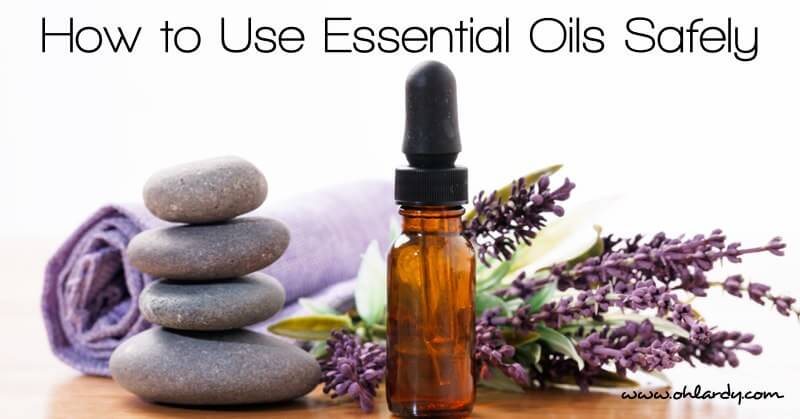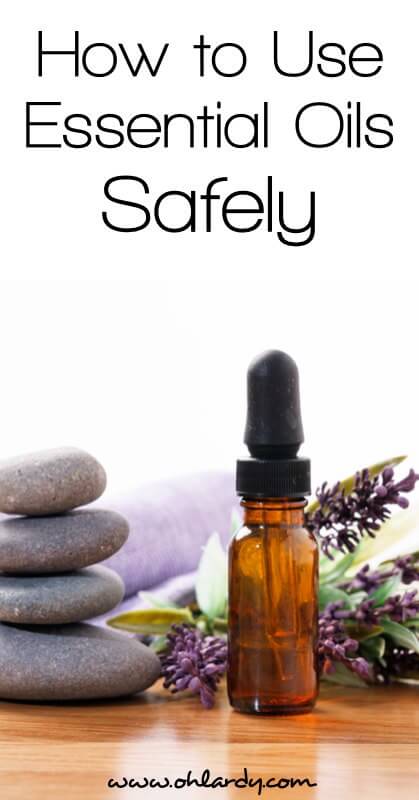Basic Guidelines for Using Essential Oils Safely
Oh Lardy! is a participant in the Amazon Services LLC Associates Program, an affiliate advertising program designed to provide a means for us to earn fees by linking to Amazon.com and affiliated sites.

Essential oils are powerful things. It is important to have some guidelines to follow, especially when just starting out on your oily journey. We find that starting gradually, proceeding with caution and figuring out what works best for you is the best way to go!
Kelly and I use essential oils daily in our household for supporting our immune system, helping us feel more focused, back to school situations, maintaining healthy digestion, calming and sleeping, making DIY products like hand cleaning sprays, deodorants and so much more! Even the men in our households love their oils!
We love using 100% Pure, Therapeutic Grade Young Living Essential Oils. They have changed our lives for the better in so many ways!
Here are some general guidelines to help you on your way to using essential oils safely.
Storage
- Always keep a carrier oil on hand (olive oil, coconut oil, etc.) when using essential oils. Carrier oils dilute essential oils if they essential oil causes discomfort or irritation.
- Keep bottles of essential oils tightly closed (they can evaporate if exposed to air) and store in a cool location away from direct light. I keep mine in a drawer in my kitchen. If stored properly, they will maintain their potency for years.
- Keep essential oils out of reach of children.
Safe Usage
- Essential oils rich in menthol should not be used on the throat or neck area of children under the age of 18 months.
- Citrus oils are photosensitive and may affect skin when exposed to sunlight. Limit sun exposure or use sunscreen within 1-2 days after applying citrus oils topically.
- Never put essential oils in eyes or inside the ear canal.
- Pregnant women should consult a health care professional before starting any type of health program. Essential oils are safe to use but always talk to your doctor first.
- Epileptics and those with high blood pressure should consult their health care professional before using essential oils.
- People with allergies should test a small amount of oil on an area of sensitive skin before using. It is unusual to have an allergy to an essential oil but it is always best to check first!
- Before taking oils internally, first check the Young Living bottle for supplement facts to be sure they are able to be ingested. Second, test your reactions by dropping 1 drop of essential oil into a teaspoon of coconut oil, milk, maple syrup, etc.
- Some reactions to essential oils can be delayed as long as 2-3 days.
- Add 1-3 drops of essential oils to bath water. If adding more, it is best to mix first with bath salts or a bath gel base before adding to water. This helps the oils disperse throughout the water and not float on top.
- Always skin test an essential oil before using it.
- Some oils can be used ‘neat' or undiluted. Many need to be diluted. Look on the back of your bottles for advice on dilution ratios. You can even dilute essential oils more than what is on the bottle. I like to use this guide for dilution.
- Always dilute oils (except lavender) when using on children.
- If taking essential oils internally in a capsule, add a few drops of olive oil or other oil to the capsule.
- Keep ‘hot' oils away from children and always dilute them before using. Examples are oregano, cinnamon, thyme, eucalyptus, lemon, Thieves.
- Read more about using essential oils at The Oily Angels website.
Want more info on using essential oils safely? Check out this post from Young Living.

